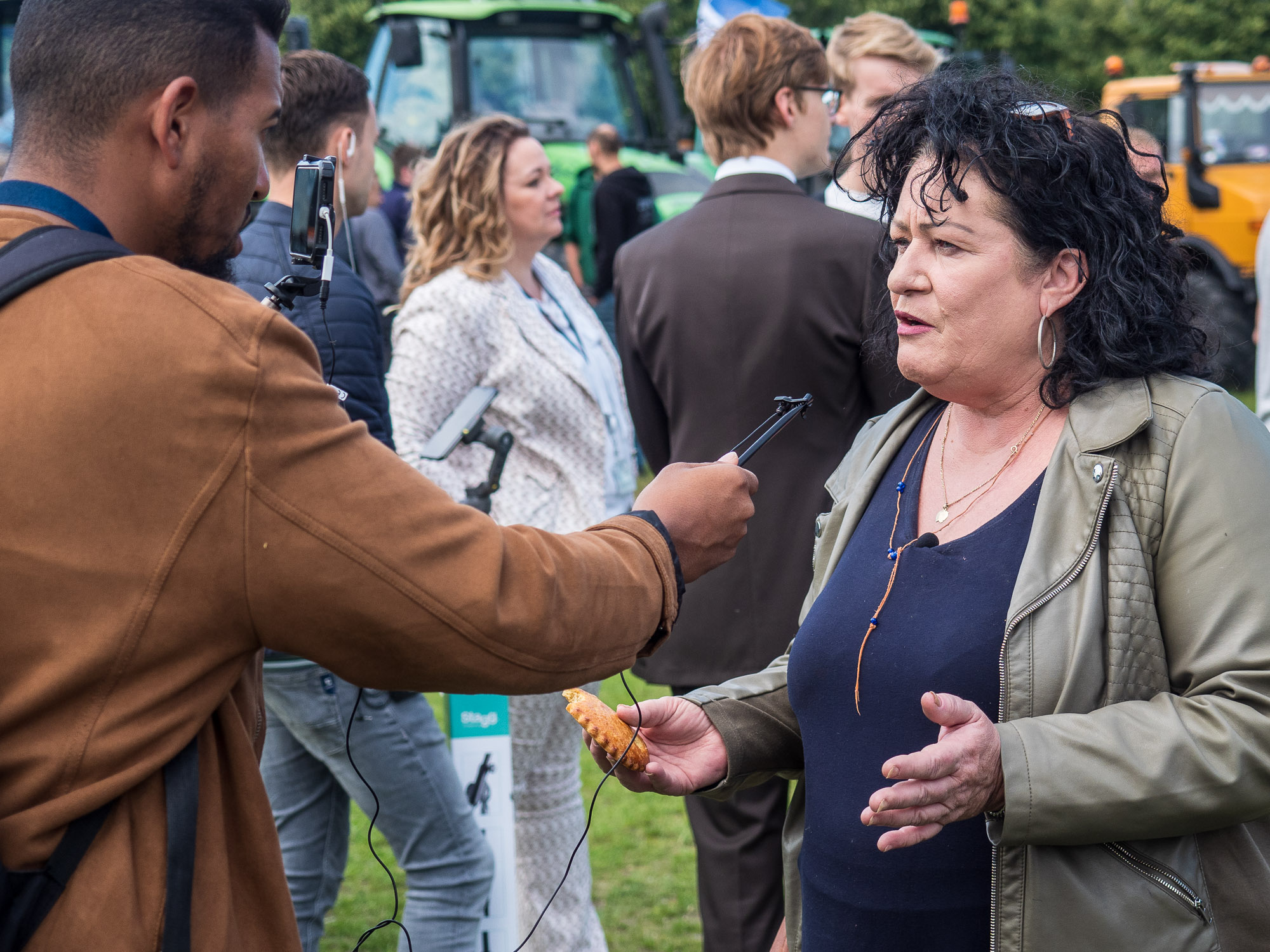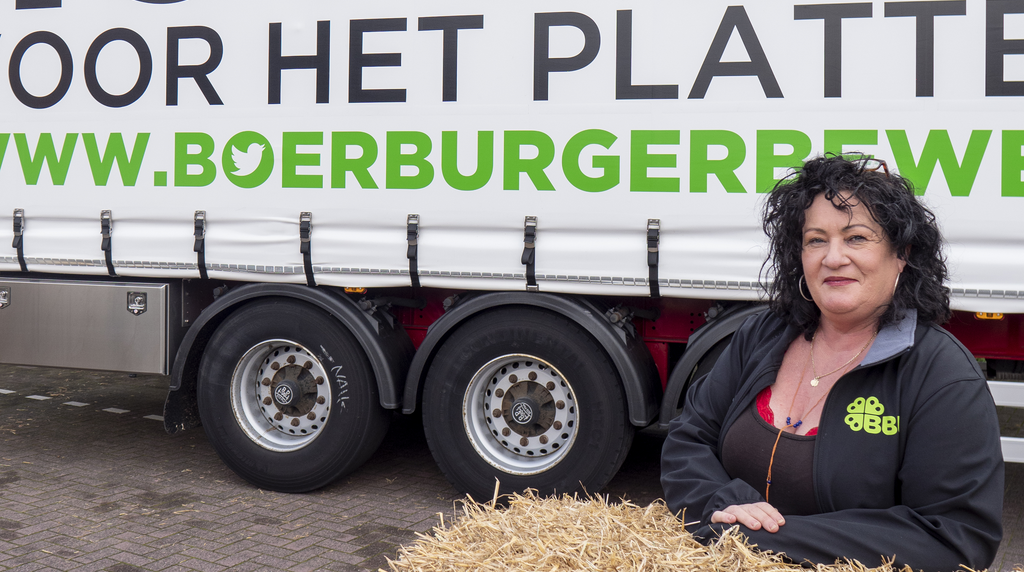On 15 March, the Netherlands held provincial elections, which once again led to a shift in Dutch politics. These elections were a litmus test for Mark Rutte’s government and the ruling parties, which have taken a beating.
As the electoral results started rolling in, it became clear that one party was consistently the biggest in all twelve Dutch provinces. This party is the BoerBurgerBeweging (Farmer and Citizens Movement, BBB) a right-wing, demagogic party whose origins are in the farmers’ protests that have shaken the country since 2019. These protests have targeted government restrictions on the release of nitrogen compounds (ammonia and nitrogen oxides) into the atmosphere. These restrictions would lead to more regulations for farmers, many of whom claimed they would endanger the Dutch agricultural sector and rural society.
Despite the fact that farmers’ demands are far removed from the majority of the population, and that the movement has been infused with reactionary, right-wing, demagogic elements, it has acted as a point of reference because of its sheer militancy. Although the farmers are a tiny minority of the population (no more than 1 percent) and the protests only numbered a few tens of thousands, they were able to wreak massive disruption. They blockaded highways to the main cities with tractors, sprayed manure on government buildings, dumped burning bales of hay on roads, and even attempted a jailbreak to free other farmers that had been arrested. At certain moments, the government even had to use army trucks to protect government buildings.
The rapid ascent of the BBB shows how, when a militant lead is given and war is declared against a broadly hated government, much of the accumulated discontent in society can be drawn to it like a lightning rod. This shows what could be done if the labour movement and the left acted with similar militancy. But in the absence of that, we see right-wing parties capitalising on the discontent in society. [Read more about the farmers’ protests here.]
While we don’t agree with the government policies of prime minister Rutte, these farmers’ protests are of a reactionary nature and are funded by the big agribusiness companies. Various right-wing parties have attempted to co-opt these protests, with the BBB (founded in 2019) eventually emerging as its political expression.
The BBB, scoring major victories in rural areas in particular, has emerged as the biggest party in the provincial councils, and therefore also in the Senate (elected indirectly by provincial councillors). Many on the left see BBB’s victory as a disappointing development, but it should not discourage us – rather, we need to analyse why this party gained so many votes.
We witnessed a similar situation in the provincial elections of 2019. At that time, the reactionary party Forum voor Democratie (FvD) became the biggest party. This year, the FvD completely collapsed and the BBB is reaping the benefits. The elections, that almost always fall between general elections, are quite often treated as a referendum on the sitting government.
The BBB’s base consists not only of farmers, but also the rural petty bourgeoisie and part of the provincial working class in the countryside and in medium sized cities. In the bigger cities and among the youth, the party enjoys substantially less supporters.
Their success has in part been assisted by the spotlight placed on Caroline van de Plas, the BBB’s leader, by the media who have conducted multiple interviews with her with little to no criticism. The bourgeois media are always looking for a ‘respectable’, right-wing opposition to Rutte’s government. However, being a media darling does not explain everything.
The party managed to connect with certain layers of the middle class and working class, by waging a strategy of ‘culture war’ against the ‘metropolitan elites’, one they say is waged on behalf of the ‘ordinary, sober-headed folks in the provinces’. They garnered some support through their opposition to the nitrogen policies, which allowed them to further portray themselves as fighting the politicians in ‘the Hague’.
However, they also stated their opposition to governmental cuts on services in rural areas, such as public transport. This connects with layers in the countryside, who have seen many bus lines to smaller towns being scrapped over the years. The BBB calls this an example of ‘metropolitan politics’, while the main culprit has been the privatisation of public transport, with bus lines being scrapped for reasons of profitability.
But more than this, the vote for the BBB is part of a general protest vote, as discontent with the Rutte administration grows. There have been many scandals over the years, and there is general disappointment with the hollowing out of public services and the rising cost of living. However, the lack of a socialist class alternative means the BBB was able to step in and partially fill the vacuum.
The BBB’s success is assisted by the party’s cohort of experienced demagogues who managed to portray themselves as a level-headed alternative to the more openly racist parties like the FvD and Geert Wilders’ PVV. They took strategic decisions, like opposing the pension counter-reforms (which were supported by the ‘centre left’). However, in essence the BBB is just another reactionary, bourgeois party, one with connections with the large agricultural business sector. Its ranks are filled with bourgeois politicians who formerly belonged to the Christian-Democrats (CDA) and even Rutte’s own party, the VVD.
Instability on the horizon
As mentioned, the BBB will become the biggest party in the national Senate, most likely receiving 17 out of 75 seats (about 22-23 percent). The four coalition parties (VVD, CDA, D66, CU) on the other hand went from 32 to 23 seats jointly, with their minority in the Senate losing even more strength.
But the nominally ‘left’ parties also failed to do well. The Partij van de Arbeid (Labour Party, PvdA) and GroenLinks (GreenLeft), parties that recently decided on a joint list in the Senate, boast that their joint result of 15 seats (about 20% of the votes) was a victory and proof of the success of ‘left unity’, despite their performance not being substantially different with the last election. These centre-left parties have basically acted as a left-wing cover for the Rutte government, and their fusion talks are a sign of weakness, not of strength. By comparison, in 2007 the PvdA was able to get 19 Senate seats on its own, showing the scale of the collapse of social democracy.
 The BBB's success has been assisted by the spotlight placed on Caroline van de Plas by the media, who have conducted multiple interviews with her with little to no criticism / Image: Sjoerd Luidinga, Flickr
The BBB's success has been assisted by the spotlight placed on Caroline van de Plas by the media, who have conducted multiple interviews with her with little to no criticism / Image: Sjoerd Luidinga, Flickr
The left-reformist Socialistische Partij (Socialist Party, SP) took some substantial hits, losing support in every single province, going from 4 to 3 seats. Their programme had some positive demands such as the nationalisation of the energy sector and opposition to the pension reforms, but they did not manage to mobilise mass support or garner any enthusiasm among young people. Among other factors, this was owed to their chauvinistic position on migrant workers, and their extreme focus on their party leader, Lilian Marijnissen, who has now overseen a declining vote for five consecutive elections. In the last few years, the party has systematically expelled left-wing oppositionists who have criticised its party line, and its internal life is almost completely dead.
Clearly there is an enormous vacuum on the left, a hole which can only be filled by a new political expression of the labour movement. While superficially these results show a shift to the right, the Netherlands is experiencing resurgent labour militancy and waves of strikes. Since last summer, there have been militant strikes of airport workers, bus drivers, railway workers, retail workers, refuse collectors, hospital workers, and others, fighting to defend their living standards against the highest inflation in 40 years (which on average exceeded 11 percent last year). Trade union membership is, for the first time in many years, going up. New layers are getting involved in the labour movement, but these developments do not yet have a political expression.
The BBB takes advantage of this and has attempted to garner support from the working class. The BBB can succeed in this for a while, until they expose themselves as class enemies of the workers if and when they join a future government. The party has risen quickly, but can also quickly collapse.
In the coming period, the cabinet will be forced to compromise with the BBB on its nitrogen policy, and this capitulation might lead to a crisis within the coalition. If, on the other hand, the cabinet tries to work together with the PvdA and GroenLinks to get a majority, the BBB will receive even more ammunition to attack the cabinet, which could lead to further cabinet crises too. The one certainty in all this will be further political instability in the Netherlands.
In this chaos and uncertainty, we need clear perspectives. Marxism offers the lens with which we can understand the current situation and prepare the labour movement for the coming struggles. “Neither weep nor laugh, but understand.” There are big events on the horizon. Join the Dutch Marxists and help prepare for these events!

